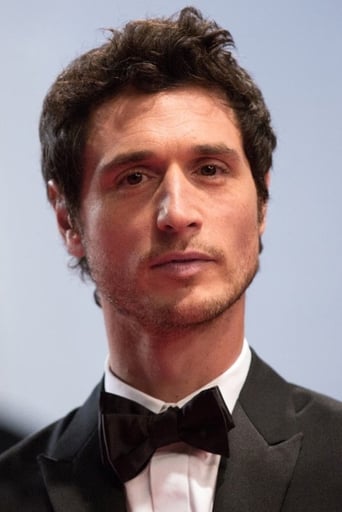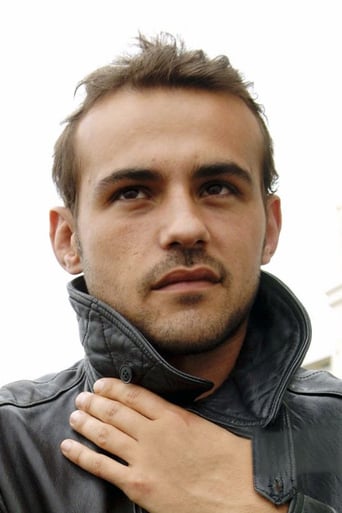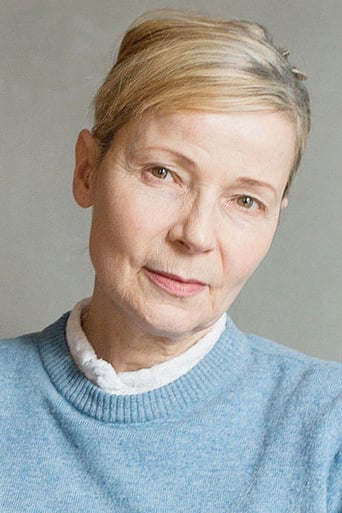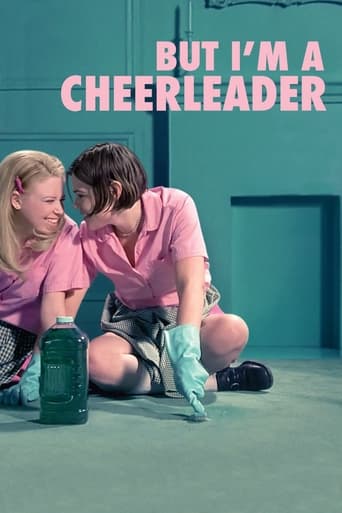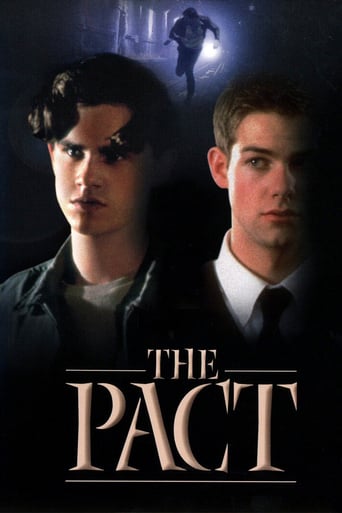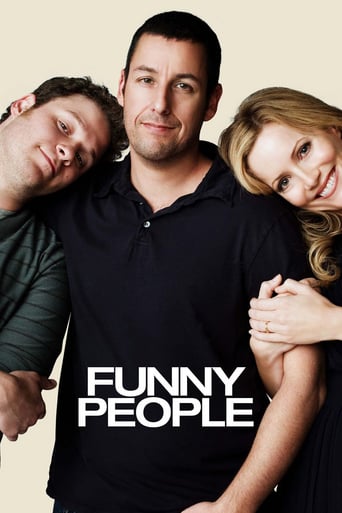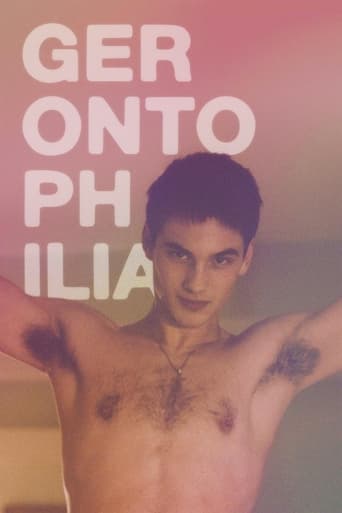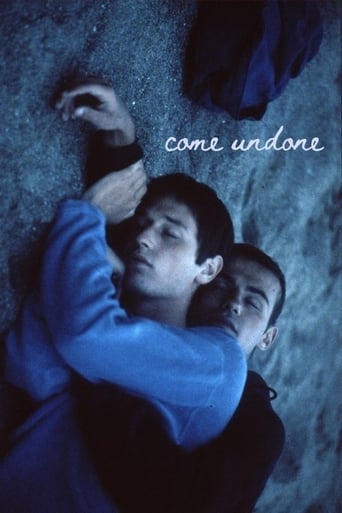
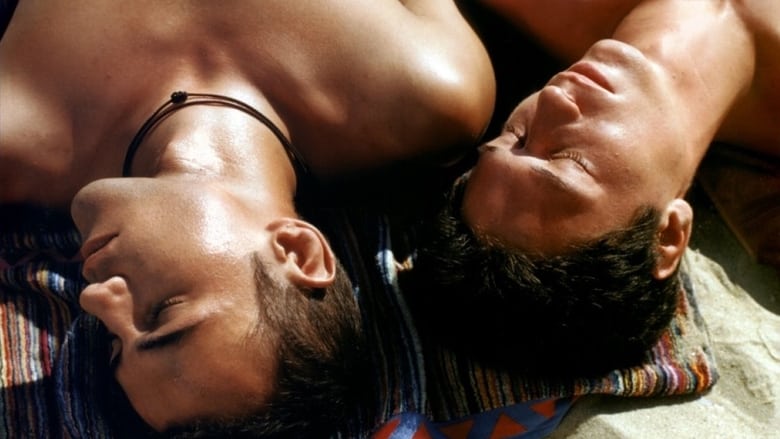
Come Undone (2000)
Story of two gorgeous, young French boys who begin a passionate relationship that boils over and threatens to destroy both their lives. Shy 18-year-old Mathieu is on summer vacation in the south of France. He spends his days lazily sunning himself at the beach, until he spies the handsome Cédric and falls in love.
Watch Trailer
Cast
Similar titles
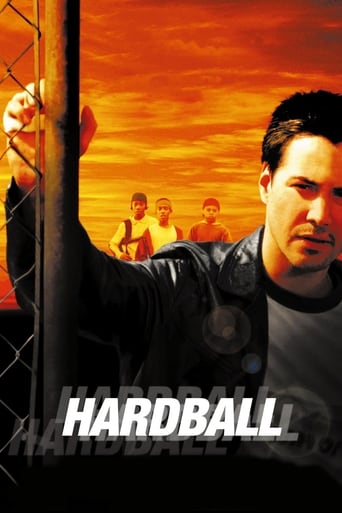

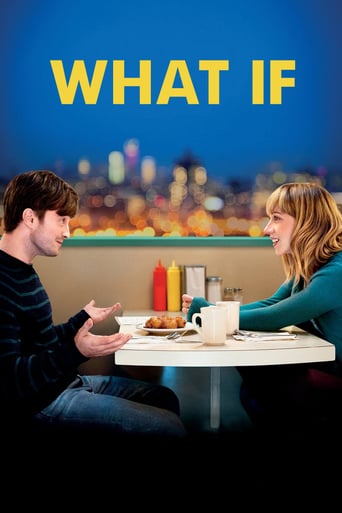
Reviews
hyped garbage
It's funny, it's tense, it features two great performances from two actors and the director expertly creates a web of odd tension where you actually don't know what is happening for the majority of the run time.
This is a coming of age storyline that you've seen in one form or another for decades. It takes a truly unique voice to make yet another one worth watching.
Great story, amazing characters, superb action, enthralling cinematography. Yes, this is something I am glad I spent money on.
Director Sébastien Lifshitz trusts in incomplete junctures, ruptured times and constant flashbacks to create a narrative line that encircles the most significant moments in the life of Mathieu, the protagonist. Without following habitual guidelines, the story begins a couple of years after the main events of the film, and through long flashbacks the viewers understand that Mathieu is hurtfully unraveling and that his boyfriend Cédric has already been confined to the past.At the very beginning of the film we learn that Mathieu has attempted to commit suicide, that he has no intention of continuing his relationship with Cédric and that, in spite of it all, once he leaves the hospital he will visit the beach in which the two of them met for the first time.But how exactly was that first encounter? The first flashback scenes are somehow cold and neutral, they follow the protagonist like in a documentary, without providing the audience with cause of concern or any real emotional binding: Summer is reduced to tediousness, to a routine in which the camera is fixated on Mathieu's daily affairs, we understand that besides swimming in the sea, smoking in his bedroom and jerking off in the bathroom there is not much going on in his life. When Mathieu is lying on the sand, the presence of another boy distracts him. After perusing each other at the beach, the two teenagers finally find the courage to meet. For Mathieu, this is his first homosexual experience, for Cédric (interpreted by Stéphane Rideau, a most influential figure in contemporary French gay cinema) it isn't.There is an intense passion between these two youngsters. As they start spending more and more time together, and as things quickly progress into the realms of sex, soon Mathieu's relatives become suspicious. Mathieu's mother is deeply depressed and her son doesn't want to upset her by coming out of the closet. His sister, however, knows exactly what's going on from the beginning.If there is something singular in Lifshitz's treatment of gay characters is how natural it's for them to be faithful to their true nature. Here accepting homosexuality is never a big deal, revelations are never a dramatic scene and they never involve crying or excruciatingly painful dialogs. The real drama comes from the lack of a paternal figure, id est, the lack of fatherly authority. With a depressed mother that lives in a world of her own as a consequence of the pills she takes, and the complete absence of the father, Mathieu is free to do as he pleases. But he's never truly free, for freedom actually means an emancipation from fatherly figures, and such emancipation can never be possible if there are no fathers at all.For Jacques Lacan the 'nom de pere' was the law of the father; even when a single mother is raising her child, she will be able to summon the name of the father and invest herself with an authority that comes from that tautological figure that does not need to explain or justify, that needs only to say 'no because I say so'. Clearly Mathieu has an unresolved conflict with the man he never sees, the man that has also abandoned her mother when she needed him the most. Oh sure, he's working hard to provide for the family, and that seems to excuse him. But when Mathieu tells the truth about himself to everyone, he has no intentions of sharing that intimate admission with his father. If the father is absent, there is no authority, and because of that, Mathieu is confused.Cédric has a father but his relationship with him is distant. He's independent, and since his independence came at a great price, he has been able to surmount the need to obtain his father's approval; in fact, family is something he no longer craves for. When Mathieu and Cédric decide to live together in Nantes, all family ties are severed at once. But the unresolved Oedipal conflict will gravely distress Mathieu.The nonexistence of the father can be designated as a structural emptiness that would preserve the function of desire. For the neurotic, the 'lack' is commonly occupied by the demand, which on one hand protects against the enigma of the Other's desire, while at the same time preserves the 'emptiness' that is necessary for the function of desire –of course at the expense of dissatisfaction; after all every demand (which is always constituted by signifiers) is a false demand, a deceiving one (of course, it is the subject himself the first to be mislead). Cédric demands the unceasing presence of Mathieu but he does not ask kindly for it; Mathieu's original plans were to return to Paris, but faces now a disjunctive, if he obeys the demand he will only get dissatisfied but if he doesn't his relationship fails and the emptiness reappears. This demand cannot be satisfied as it echoes the emergence of the subject through the signifier: the function of the signifier requires the effacement of its own traces. In this case, the motivation to move to Nantes should have come from Mathieu and not from Cedric.After many flashbacks and prolepsis, we come to a moment in time in which everything else has been left behind. Some might say that the this is a glimmer of hope as Mathieu might find another companion in Pierre (yet another fatherless individual). But if there is one final fundamental revelation is how the two young men are preoccupied as they see a child playing alone in the beach until they realize the father is in a car nearby. Whether we want it or not, fathers still play an important role in our lives and in the way in which we define ourselves; accepting them or opposing them, they are still the authority that we follow or defy, and without that authority, existential doubts might render us motionless.
'Presque Rien' ('Come Undone') is an earlier work by the inordinately gifted writer/ director Sébastien Lifshitz (with the collaboration of writer Stéphane Bouquet - the team that gave us the later 'Wild Side'). As we come to understand Lifshitz's manner of storytelling each of his works becomes more treasureable. By allowing his tender and sensitive love stories to unfold in the same random fashion found in the minds of confused and insecure youths - time now, time passed, time reflective, time imagined, time alone - Lifshitz makes his tales more personal, involving the viewer with every aspect of the characters' responses. It takes a bit of work to key into his method, but going with his technique draws us deeply into the film.Mathieu (handsome and gifted Jérémie Elkaïm) is visiting the seaside for a holiday, a time to allow his mother (Dominique Reymond) to struggle with her undefined illness, cared for by the worldly and wise Annick (Marie Matheron) and accompanied by his sister Sarah (Laetitia Legrix): their distant father has remained at home for business reasons. Weaving in and out of the first moments of the film are images of Mathieu alone, looking depressed, riding trains, speaking to someone in a little recorder. We are left to wonder whether the unfolding action is all memory or contemporary action.While sunning at the beach Mathieu notices a handsome youth his age starring at him, and we can feel Mathieu's emotions quivering with confusion. The youth Cédric (Stéphane Rideau) follows Mathieu and his sister home, continuing the mystery of attraction. Soon Cédric approaches Mathieu and a gentle introduction leads to a kiss that begins a passionate love obsession. Mathieu is terrified of the direction he is taking, rebuffs Cédric's public approaches, but continues to seek him out for consignations. The two young men are fully in the throes of being in love and the enactment of the physical aspect of this relationship, so very necessary to understanding this story, is shared with the audience in some very erotic and sensual scenes. Yet as the summer wears on Mathieu, a committed student, realizes that Cédric is a drifter working in a condiment stand at a carnival. It becomes apparent that Cédric is the Dionysian partner while Mathieu is the Apollonian one: in a telling time in architectural ruin Mathieu is excited by the beauty of the history and space while Cédric is only interested in the place as a new hideaway for lovemaking.Mathieu is a complex person, coping with his familial ties strained by critical illness and a non-present father, a fear of his burgeoning sexuality, and his nascent passion for Cédric. Their moments of joy are disrupted by Cédric's admission of infidelity and Mathieu's inability to cope with that issue and eventually they part ways. Time passes, family changes are made, and Mathieu drifts into depression including a suicide attempt. The manner in which Mathieu copes with all of these challenges and finds solace, strangely enough, in one of Cédric's past lovers Pierre (Nils Ohlund) brings the film to an ambiguous yet wholly successful climax.After viewing the film the feeling of identification with these characters is so strong that the desire to start the film from the beginning now with the knowledge of the complete story is powerful. Lifshitz has given us a film of meditation with passion, conflicts with passion's powers found in love, and a quiet film of silences and reveries that are incomparably beautiful. The entire cast is superb and the direction is gentle and provocative. Lifshitz is most assuredly one of the bright lights of film-making. In French with English subtitles. Highly Recommended. Grady Harp
First love is a desperately difficult subject to pull off convincingly in cinema : the all-encompassing passion involved generally ends up as a pale imitation or, worse, slightly ridiculous.Lifshitz manages to avoid all the pitfalls and delivers a moving, sexy, thoroughly engrossing tale of love, disaster and possible redemption, while tangentially touching on some of the deeper themes in human existence.The core story is of Mathieu, 18, a solitary, introverted boy who meets Cédric, brasher, more outgoing but just as lonely, while on holiday with his family. As the summer warms on, they fall in love and, when the holidays end, decide to live together. A year later, the relationship ends in catastrophe: Cédric cheats on Mathieu who, distraught, tries to take his own life. He survives and, in order to get perspective back on his life he returns to the seaside town where they first met, this time cloaked in the chill of winter.If the tale was told like this it would never have the impact it does: much of it is implied, all of it happens non-sequentially.The intricate narrative is essential to getting a deeper feeling of the passions experienced, through the use of counterpoint and temporal perspective. Fortunately, the three time-lines used (the summer of love, the post-suicide psychiatric hospital and the winter of reconstruction) are colour coded: warm yellows and oranges for the summer, an almost frighteningly chill blue for the hospital scenes and warming browns and blues for the winter seaside.Both main actors put in excellent performances though, whilst it's a delight to see Stéphane Rideau (Cédric) used to his full capacity (I'm more used to seeing him under-stretched in Gael Morel's rather limp dramas), Jérémie Elkaim (Mathieu) has to be singled out for special mention: you can feel his loneliness, then his almost incredulous passion, then his character crumbling behind a wall of aphasia. Beautifully crafted gestures get across far more than dialogue ever could.The themes touched upon are almost classic in French cinema: our difficulty in really understanding what another is feeling; our difficulty in communicating fully; the shifting sands of meaning The film's title "Presque rien" (Almost Nothing) points to all of these and, indeed, to one of the key scenes in the film: In trying to understand why Mathieu attempted to kill himself, a psychiatrist asks Cédric if he had ever cheated on him "Non enfin, oui une fois, mais ce n'était rien" (No well, yes once, but it was nothing). Cédric still loves Mathieu he brought him to the hospital during the suicide attempt (none of which we see) and tries desperately to contact him again once he leaves but cannot understand that he has lost him forever, because something that seemed nothing to him (a meaningless affair) is everything to Mathieu.Whilst the film is darker than the rather unfortunate Pierre et Gilles poster would suggest, it is not without hope: we get to see Cédric's slow, painful attempts to get back in touch with life, first through a cat he adopts, then through work in a local bar and finally contact with Pierre, who may be his next love. But here the story ends: A teenage passion, over within the year, another perhaps beginning. So what was it? Almost Nothing? Certainly not when you're living it
I agree that the movie is a little slow at spots having many scenes of mundane everyday life and no dialog. And I wasn't impressed right after I watched it. However, after a few days, I realized that the movie stays with me and it evokes a melancholy mood which lingers in my mind. My appreciation of this movie increases. It certainly merits a higher consideration than those movies that are instantly forgettable.As many have commented, the movie is non-linear and that's a hallmark of European film-making as opposed to the linear narrative form that Hollywood favors. I don't really know whether it's true or not. Many also dislike its confusing structure and lack of clear explanations. To those viewers, I don't think there is much I can say to change their opinions. However, for others who have yet to see the film, DO expect to be challenged and DON'T expect the film to supply all the answers and you might come away enjoying it more than you would otherwise.The movie skips around a bit but really chronicles just 3 time periods. Pay attention to the hair style and you can easily separate out 2 of the 3 periods. It is also not as confusing as suggested; just enjoy and it'll all be clear at the end.Yes, lots of things are left unsaid or not shown, and lots of situations are left unexplored. But isn't that what life is like? A lot of time you're not sure of the motives of your friends/loved ones unless you confront them and even then, you can never be 100% sure if they told you the whole truth. This type of movies forces us to interpret the reasons behind the actions. The movie does, however, leave enough hints for you to make some reasonable assumptions. For example, Mathieu is manic depressive, to the point of suicidal. Why? I don't know, maybe his life is not turning out exactly as he expects it; maybe he misses his family but hasn't forgiven his father for abandoning his sick mother at her hours of need; maybe after all he sacrifices for Cedric, rearranging and indeed, shattering his life to be with him, he realizes that it is all "coming undone". I think the director meant to show us that he has always been a little off, mentality fragile by that scene w/ the dead bird. Maybe he has a very sensitive psyche and all these stresses are taking a toll on him. But we're also shown that he is not some animal torturing psycho by his loving interaction w/ the stray cat. Also, there is one conversation between the doctor and Cedric that sheds light on the reason behind the breakup and maybe the suicide attempt. The doctor asks him if everything is okay, and Cedric thinks so even though he cheated on Mathieu once, but that's nothing, according to Cedric. Is that the only reason, we don't know, there are probably others, all mixed up together. Is it paramount that we know exactly what they are? I don't think so, for this movie. Another telltale sign that they are ultimately not compatible is the historical ruins scene. Mathieu is interested in studying the ruins, Cedric is not. He is the one w/ the raging hormone who focuses only on the physical side without an intellectual side that Mathieu obviously needs.Finally, the ending is really rather hopeful and sweet. I was pleasantly surprised by the turn of events after the bleak tone that edges toward the end.I have two complaints for the DVD. One is the sound. It's very soft. I had to crank up the volume to hear the dialog and then when it switched to a bar or outdoor crowd scene, it became too loud. The other is that the subtitles can't be turn off; they stay on the screen. Most foreign movie DVDs not released by a major studio are shoddy this way unfortunately.
